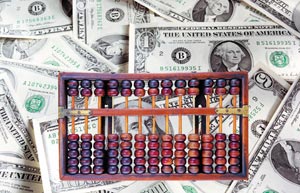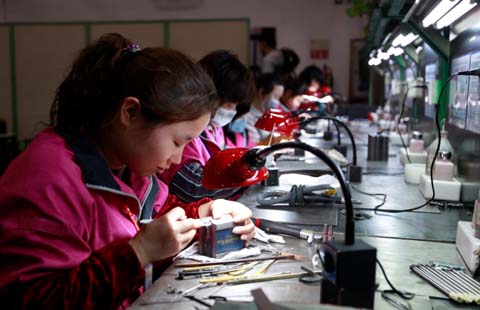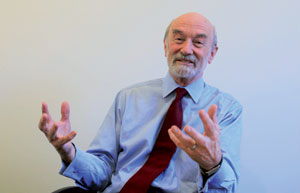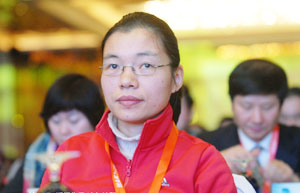Tycoons lead way on info
By Lin Jing and Chen Yingqun (China Daily) Updated: 2014-04-21 06:56"Big data will create a tailored and competitive e-commerce system for companies," says Zhou Tao, a professor with the University of Electronic Science and Technology of China in Chengdu, Sichuan province.
Li Ka-shing, the richest Chinese person, is another of the big entrepreneurs betting big on big data.
In January, the Li Ka Shing Foundation set aside $3 million as a grant to the Stanford University School of Medicine for a new initiative that aims to study vast repositories of biomedical data looking for ways to improve human health and lower healthcare costs. Stanford has teamed up with the University of Oxford for the project.
|
 |
 |
Lloyd Minor, dean of the School of Medicine at Stanford, says that in the world of medicine there are always huge amounts of data floating around. These include electronic patient records, DNA sequencing, biological data on disease mechanisms, clinical trials and pharmaceutical records. "We can put all these large datasets to work to identify innovative approaches to treatment and improve access to care," he says.
Through his foundation, Li has provided more than $37 million to support the medicine school for a wide range of projects, such as fellowship training and equipment.
The project allows the two universities to accelerate discovery from many data bases to provide new insights into diseases and to apply targeted therapies to patients cheaply.
Li, a self-made businessman who manages a multi-faceted business empire through his Hong Kong-based companies Cheung Kong Holdings and Hutchison Whampoa Ltd, says big data will transform biomedical sciences.
"I am very excited that our foundation can help two eminent institutions join and take us to the next level of discovery that will revolutionize patient care and treatment to solve today's health-related challenges," Li says in the foundation's statement.
Miao Kaixiang, chief technology officer with the data center software division of Intel Corp, says big data can enhance the efficiency of data processing in medical imaging, medication and surgery.
 |
 |
| Chinese Internet firms dig big data gold |
- Big stars shine at Auto China
- When big data can lead to big profit
- E-racing may change shape of transport
- GM to battle VW in China
- Frugal policy slows catering industry to 20-year low
- China to maintain high grain output in 2014-2023
- China shuts down 110 porn websites in national crackdown
- EU hopes to strengthen cooperation with China on climate change

















